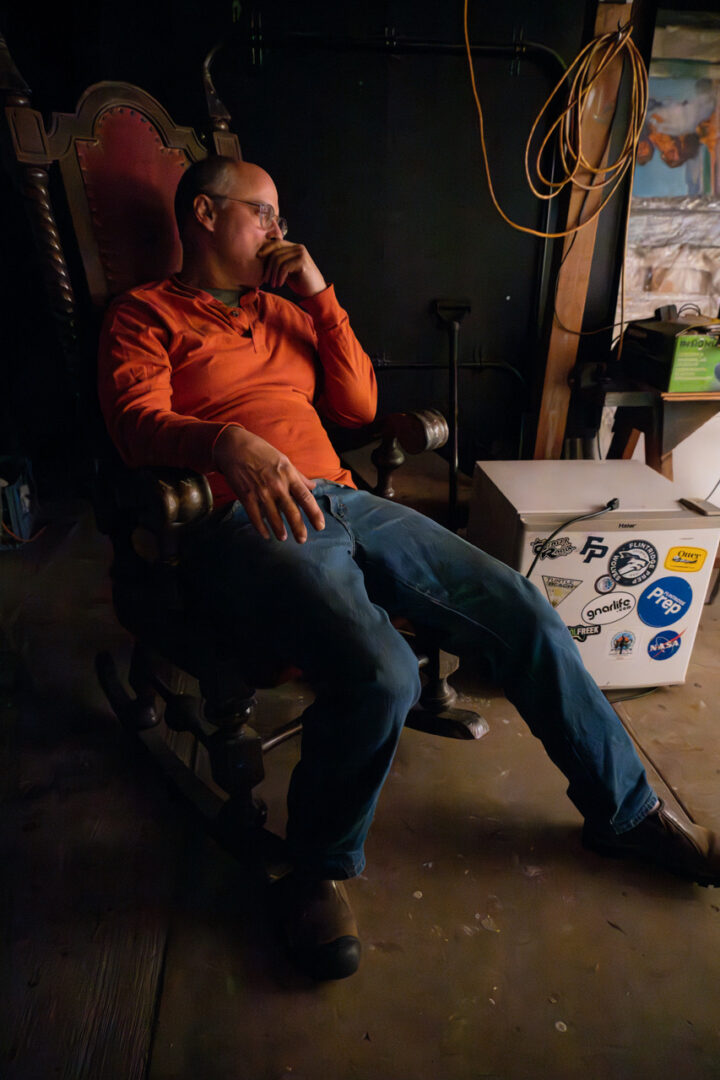Michael Andrew Rosenfeld shared their story and experiences with us recently and you can find our conversation below.
Hi Michael Andrew, thank you so much for joining us today. We’re thrilled to learn more about your journey, values and what you are currently working on. Let’s start with an ice breaker: What makes you lose track of time—and find yourself again?
The act of painting. I will work at it in a conscious methodical way until I hopefully find myself in the zone where I am no longer thinking. That is my goal during any work day, sometimes I don’t quite get there, but still get work done. When I do achieve that stasis things can happen that are beyond my original intent.
Can you briefly introduce yourself and share what makes you or your brand unique?
I am a painter of representational artwork. The work fluctuates from realism to surrealism , although the more realistic work will also tend to have a dreamlike bent.
I grew up in Missouri, west of Saint Louis. I went to college at Wesleyan University in Connecticut (BA), and later went to graduate school at Washington University in St. Louis (MFA) . I went to New York in 1987 ,and lived there until 1991, when I moved to Los Angeles.
As a child I was fascinated with old horror movies . The quality of the black and white film , and the fantastic imagery had a mesmerizing effect on me. Historical documentaries and Civil War photography were also of tremendous interest to me. Another defining aspect of my childhood were camping trips in the northern midwest and Canada. Being in wilderness areas untouched by humankind gave me a feeling of freedom not found in civilization.
Different aspects of the above influences all find their way into my work as do the places I have lived. The artificial and natural worlds , as well as the tension between them , are integral elements of what I convey to the viewer .
Okay, so here’s a deep one: Who saw you clearly before you could see yourself?
I had a professor at Wesleyan, David Schorr. He was my drawing professor, and it was a very traditional and difficult class. I was surprised when I got into the class because I had a rudimentary portfolio, and he did not seem impressed. Professor Schorr taught me how to use my eyes to draw in a way that I had never attempted. At the end of the term, we were looking over my work, work that I never thought I could do ,which I remarked upon. He looked at me and said “no, you could always do that”
Every once in a while , or in a lifetime , one is lucky to have a teacher who sees in you the potential you do not see yourself.
If you could say one kind thing to your younger self, what would it be?
Money comes and goes . The only constant is one’s determination and character.
Alright, so if you are open to it, let’s explore some philosophical questions that touch on your values and worldview. What would your closest friends say really matters to you?
My family, my animals , and my work.
Thank you so much for all of your openness so far. Maybe we can close with a future oriented question. When do you feel most at peace?
In my studio , wrestling with work beyond my past abilities.
Contact Info:
- Website: https://www.dirigibleturtle.com
- Instagram: @michaelandrewrosenfeld
- Linkedin: Michael Rosenfeld
- Facebook: Michael Andrew Rosenfeld
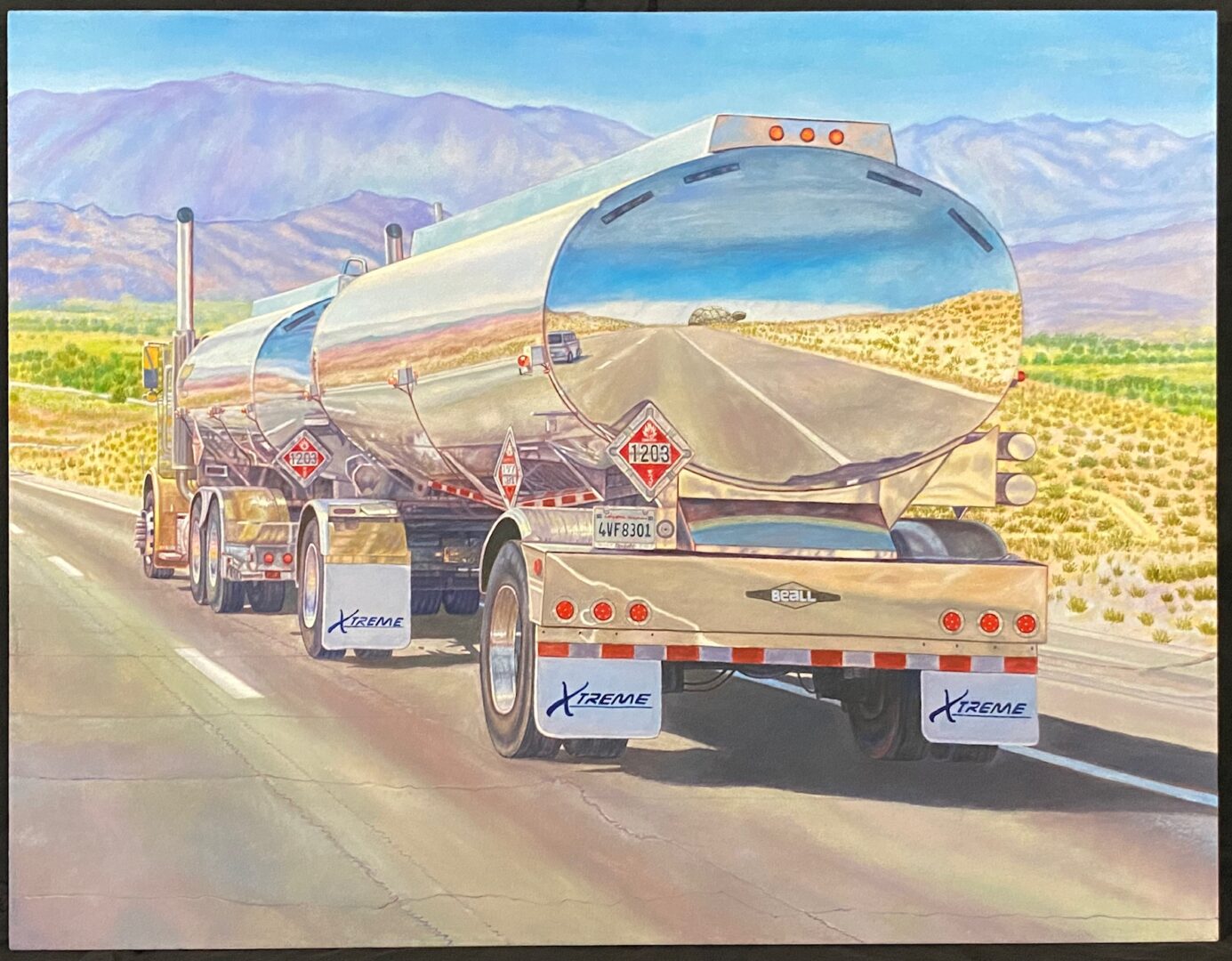
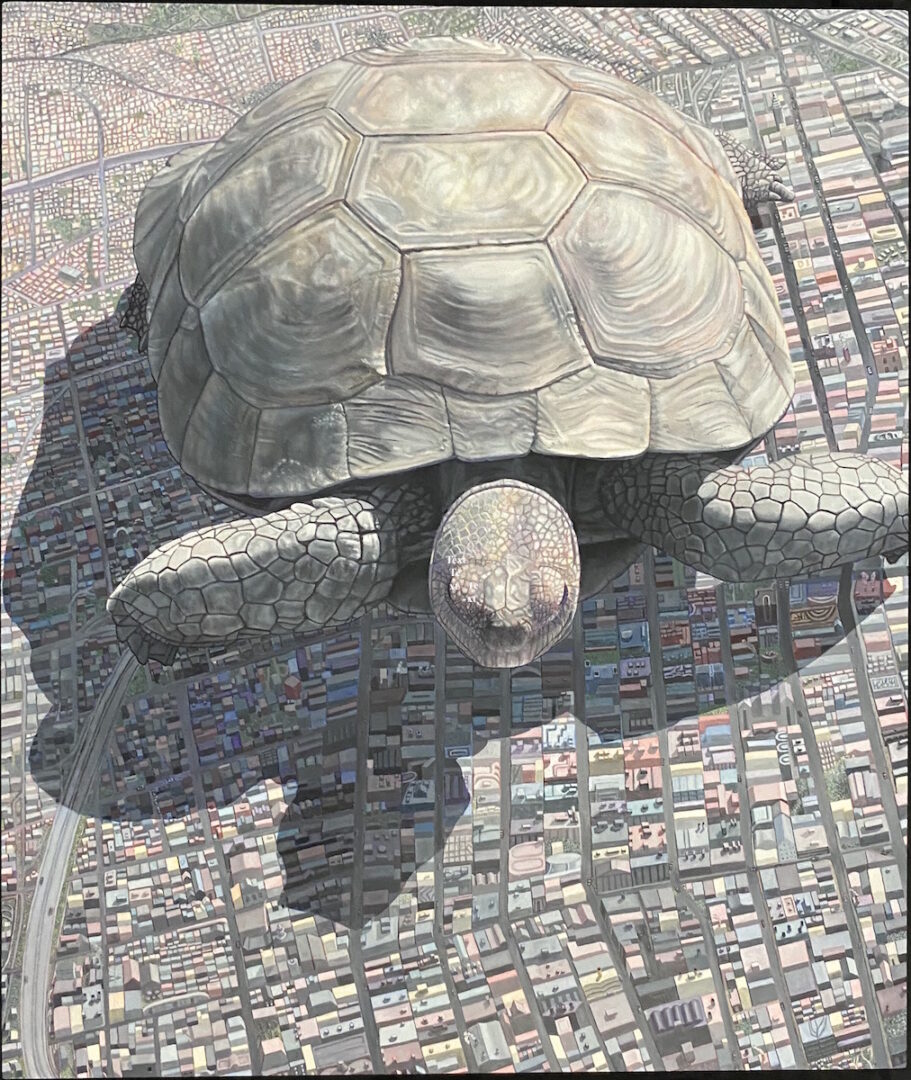
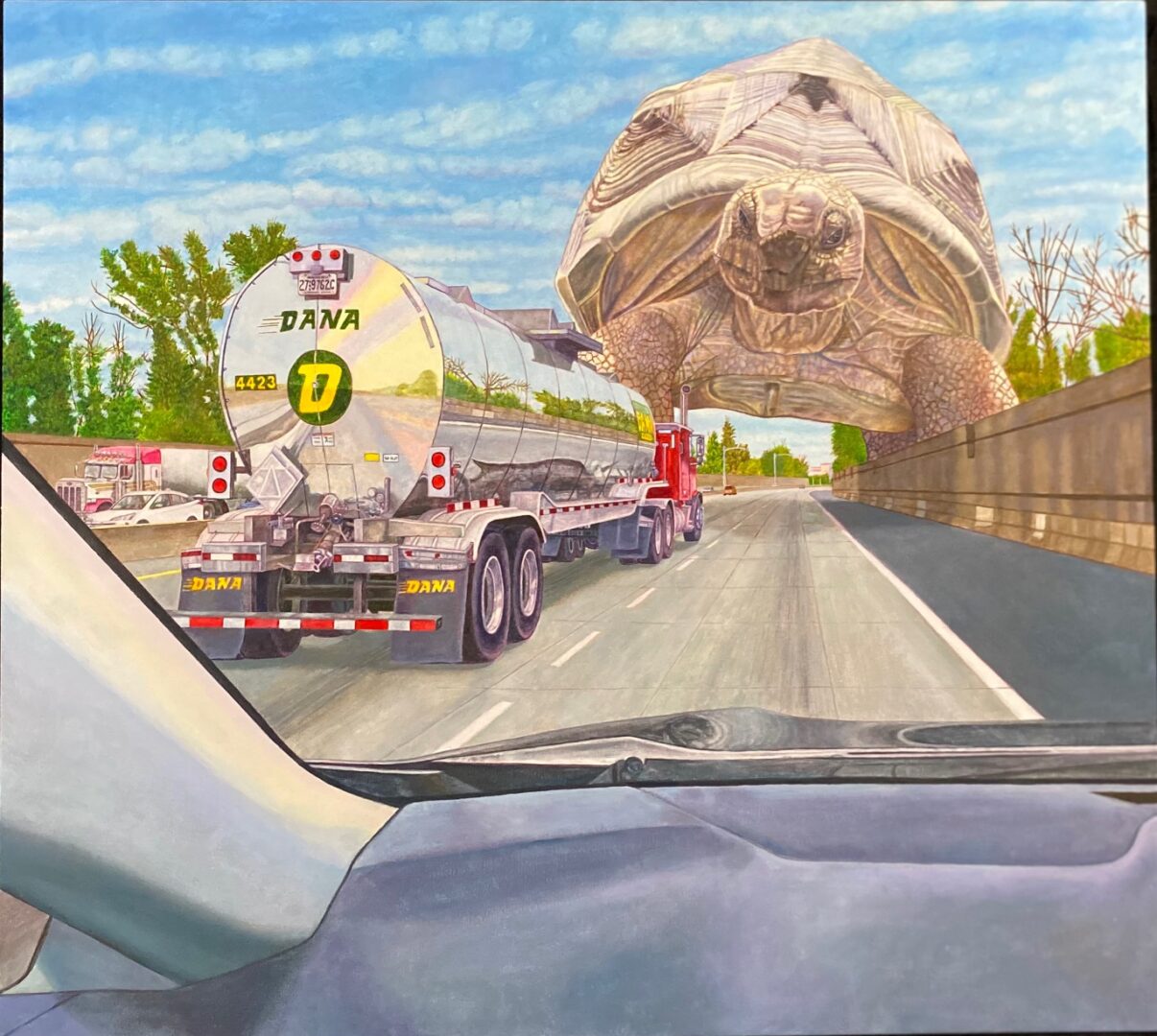
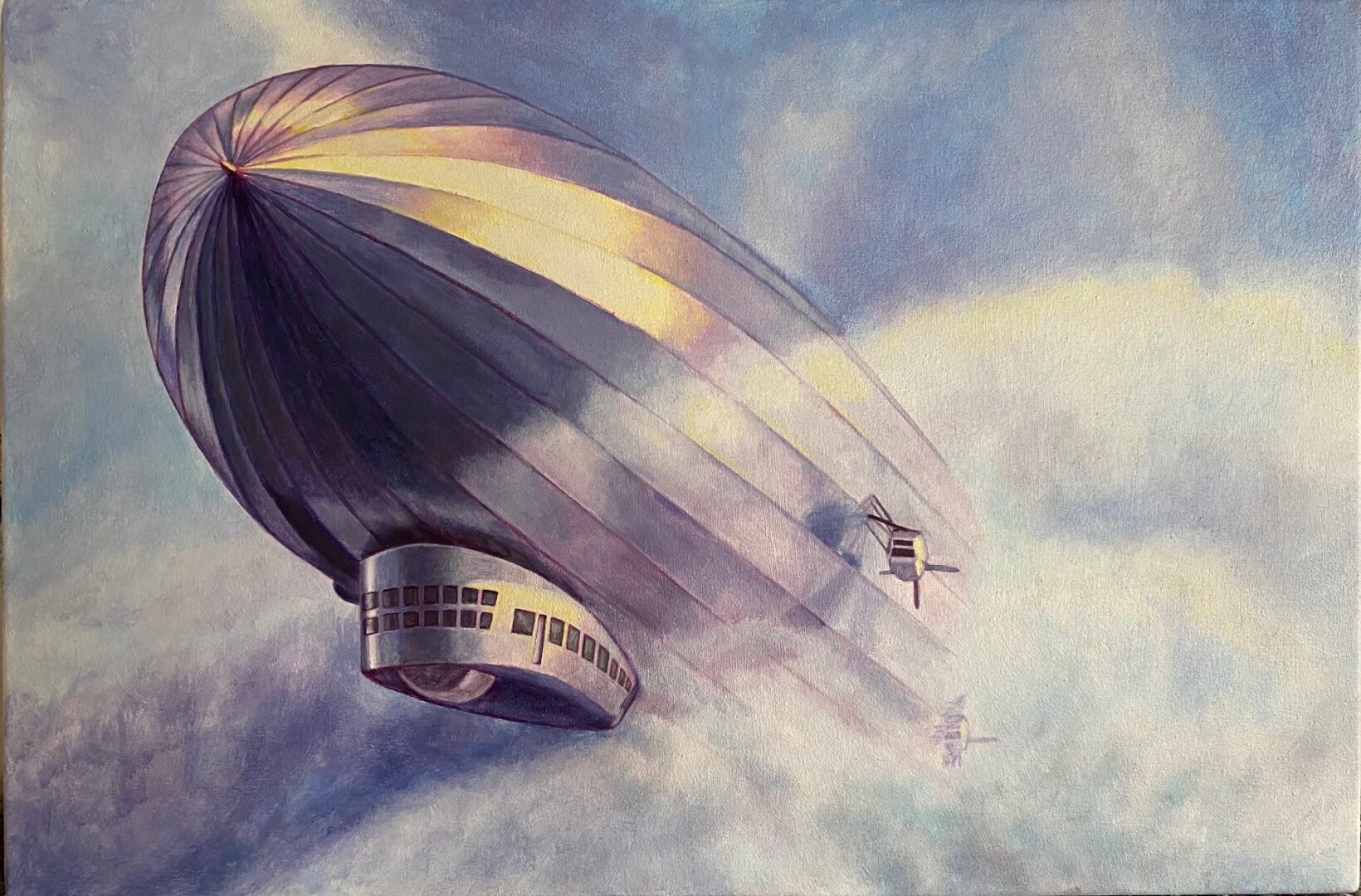
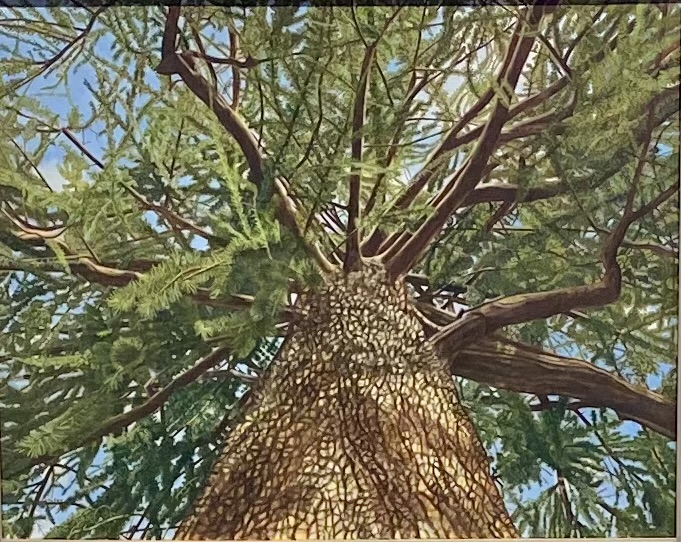
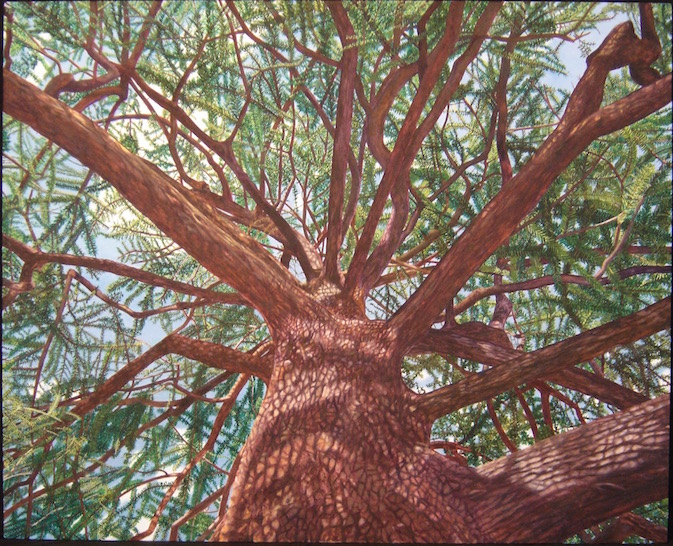
Image Credits
Portrait photo is by Matt Wright (@mattwrightphoto)
so if you or someone you know deserves recognition please let us know here.

